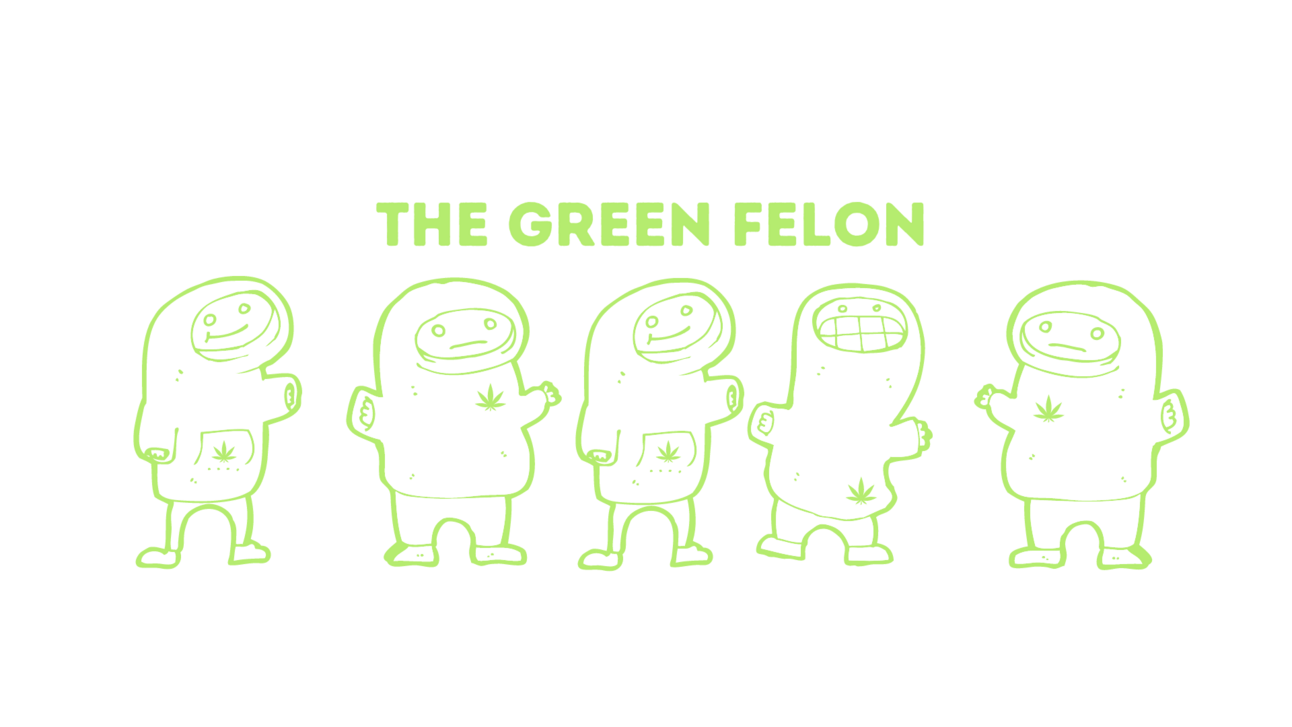
News Highlights 🦩:
California’s ☀️ AB 2188 protects officers’ legal off-duty cannabis use—but doesn’t allow impairment on the job. Advisable for non-officers 👩🎤 too: clarify you're off-duty and calm. policemag.com
South African 🇿🇦 police ordered to avoid arresting individuals for personal-use cannabis in private spaces. If police 🚓 encounter you, calmly ask clarification and assert you're within legal private rights. www.groundup.com
Courts ruled NJ officers 🆘 can legally use cannabis off-duty, suggesting that law enforcement also sees value in distinguishing between legal usage and on-duty impairment—useful mindset when explaining 🗣 your own situation. www.revolvernews.com

Quick Read 🧳:
🚔 Constitutional Anchors: Assert your Fourth 🖖🏼, Fifth 🖐️, and Sixth Amendment rights using precise legal language to avoid unlawful searches or self-incrimination.
🚔 Strategic Silence & Tone: Maintain calm, avoid emotional escalation, and use pre-rehearsed neutral statements like “Am I being detained or am I free to go 🏃?”
🚔 Scenario-Based Risk Navigation: Understand how risk levels shift in varied situations—such as airports 🛩️, border crossings, or traffic stops—to optimize your legal strategy.
🚔 Law Enforcement Tactics & Triggers: Know what raises suspicion—visible cannabis, odor, or behavioral cues—and how to legally deflect unconstitutional overreach 🤏.
🚔 Federal vs. State Jurisdiction Tension: Cannabis legality is fragmented; federal zones like TSA checkpoints 🛫 remain high-risk zones regardless of state laws.

How to Talk to Police If Caught with Weed 🧏♀️
Legal cannabis 🌿 is enjoying unprecedented normalization in American society—but that does not mean that all weed-related encounters with law enforcement are without risk. Depending on your location, your quantity, your tone, or even your clothing 🎽, a run-in with police while in possession of cannabis can rapidly escalate into a nightmare scenario. Understanding your rights is not just smart—it's essential 🛡️.
We are going to unpack, from a legal, social, and psychological perspective 🧠, the key ways to navigate police interactions if caught with weed. You'll find scripts 📨, practical strategies, and a table summarizing outcomes across jurisdictions. With legalization unevenly spread and federal law still prohibiting cannabis, preparation is your best defense 🛑.
And the easiest way to do it is politely say ‘I’m not discussing my day,’ no matter what they ask.”
Constitutional Grounding: Know the Amendment Arsenal 📜
Most Americans 🇺🇸 vaguely know they have “rights,” but few can articulate which rights protect them when cannabis enters the equation. Let's clarify:
Fourth Amendment: Protects against unreasonable searches and seizures 🔍. This means the police generally need a warrant or probable cause to search your vehicle or home.
Fifth Amendment: The right to remain silent 🫢. You’re never obligated to answer police questions about cannabis—or anything else.
Sixth Amendment: You have the right to an attorney ⚖️. If things go south, this amendment becomes your legal parachute.
These amendments aren't ornamental 🎄—invoking them can decisively shape the trajectory of an encounter.

Tone, Body Language, and Tactical Silence 🤐
Contrary to what popular culture may depict, most police interactions are not resolved by sass, panic 😱, or over-cooperation. Remaining calm and collected is not weakness; it’s strategy.
Never argue ☑️, even if the stop seems unjust. Avoid rapid movements. Do not consent to searches. Instead, try this phrase:
“Officer 🙋🏼♀️, I do not consent to any searches. Am I being detained, or am I free to go?”
This script, while simple, is tactically rich—it makes clear you know your rights and aren't being confrontational. Silence can be interpreted as passive, but scripted silence? That’s strategic intelligence 📈.
Weed Stops 📛 by Scenario
A legal encounter over cannabis is rarely just about state law—it’s shaped by the setting, the perceived intent, and even the time of day 🌗. Below is a refined guide to various real-world weed-related stop scenarios, each with contextual insights to help you respond with legal clarity 📚 and tactical composure.
Scenario Type 🎑 | Risk Level 🎗️ | Escalation Likelihood 🧨 | Recommended Response 🧭 | Notes 📌 | Typical Outcome 🚦 |
|---|---|---|---|---|---|
Smell from a Car 🚗 | High | High | Refuse search, invoke rights | Odor is still probable cause in many states | Search or misdemeanor citation likely |
Walking with Visible Joint 🚶♂️ | Medium | Medium | Extinguish, stay silent | Public use laws remain strict despite reforms | Warning, fine, or confiscation |
Backpack at Festival 🎪 | High | High | Don’t consent, request lawyer | Event security often partners with police | Immediate search or detainment |
Medical Card Dispute 💳 | Medium | Medium | Present card, speak calmly | Inter-state cards not always recognized | Risk downgraded but not guaranteed |
At Home with Noise 📢 | Low | Medium | Ask for warrant politely | Entry without warrant often illegal | Police may leave unless exigent reasons |
Random Stop at Night 🌒 | High | High | Ask if you’re being detained | Often used as pretext for vehicle search | Citation or vehicle search very possible |
Airport Checkpoint 🚁 | Very High | Extreme | Remain silent, contact attorney | TSA reports to federal authorities | Arrest, federal charge, or seizure likely |
College Campus Patrol 🎓 | Medium | High | Stay respectful, refuse search | Federal funding restricts cannabis tolerance | School discipline or misdemeanor charge |
Border Crossing Encounter 🛶 | Extreme | Extreme | Say nothing, request attorney | Border agents not bound by state legality | Confiscation, federal case, denied entry |

Car Stops vs. Street Stops 🚙
Car stops 🚘 and street encounters operate under different legal frameworks. If you're driving and pulled over:
Keep hands visible 🖕🏼.
Roll window 🪟 down slightly, enough to speak.
Don’t fumble 🏈 or reach—wait for instruction.
Do not consent to a vehicle 🛻 search. Say clearly:
“I do not consent to any searches, officer.”
If the smell 👃🏾 of cannabis is detected, laws differ. In some states, it does justify probable cause. In others, such as California and New York, odor alone is no longer valid justification 🚫.
Street encounters, especially those involving “stop and frisk,” are more nebulous. Police can stop you based on reasonable suspicion, which is a lower standard than probable cause. But you’re still under no obligation to answer questions 📵.
Phrases That Could Haunt You 👻
Even polite, seemingly innocent remarks can unravel your protection 🔒. Avoid these phrases like the plague:
“It’s just a little weed, no big deal” ❌
“I didn’t know it was illegal here” ❌
“It’s medical—I swear!” ❌
Remember: anything you say can and will be used against you. Don’t think you're explaining yourself; you’re potentially testifying—without a lawyer 🧑⚖️.

Weed and Race: The Uncomfortable Truth 🧱
Data consistently shows that Black 👱🏿♂️ and Latino 🧔🏻 individuals are disproportionately targeted and arrested for cannabis possession—even in legalized states. While your personal behavior matters, so too does systemic bias 📊.
For communities already surveilled, silence and scripting are not just legal tools—they’re lifelines. This makes cannabis reform not just a legal issue but a civil rights issue 🗽.
If It Goes South 🙈: What to Do After the Stop
Even if arrested, do not resist. Ask for a lawyer immediately. Do not discuss your case at all, even with others in holding. Wait until legal counsel is present 🧑💼.
Write ✏️ down the officer’s name, badge number, and car number if possible. If excessive force or illegal searches were involved, file a complaint after securing legal assistance.
In some states, minor cannabis arrests can be expunged. This legal cleansing removes the stain from your record and helps secure jobs, housing 🏠, and loans.

Radical Calm in an Irregular System 🧘♂️
Talking 👄 to police when caught with cannabis is not an art—it’s a disciplined science. No amount of bravado, charisma, or panic will outperform constitutional literacy and emotional restraint.
Stay silent. Stay calm. Stay safe. Let the courtroom 🔲—not the curb—be the arena for legal disputes.
Would you know how to assert your rights if blue lights flash 🔵🔴 behind you while carrying green 🫵🌴?
🤯 Think Different 🏖️

The information provided in this newsletter is for informational purposes only and does not constitute medical, legal, or professional advice. Always consult with a qualified professional before making any decisions based on the content shared here.

